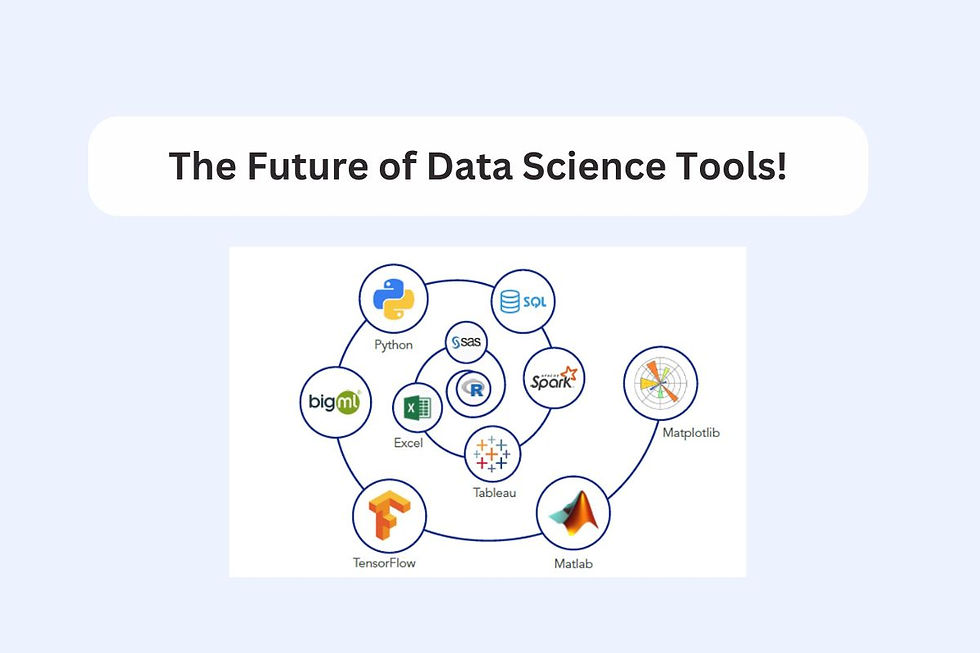5 Key Differences Between Data Science and Business Analytics
- archi jain

- Sep 26, 2024
- 3 min read

In today’s data-driven landscape, data science and business analytics are essential for informed decision-making. While both fields leverage data to uncover insights, they differ significantly in focus, techniques, skill sets, and applications. Understanding these key differences can help organizations optimize their data strategies and effectively allocate resources, ensuring they choose the right approach for their specific needs.
Five Key Differences Between Data Science & Business Analytics
1. Definition and Focus
Data Science: Data science is an interdisciplinary field that uses scientific methods, algorithms, and systems to extract knowledge and insights from structured and unstructured data. Its primary focus is on creating predictive models and discovering patterns through advanced analytical techniques.
Business Analytics: Business analytics, on the other hand, is more focused on the application of data analysis techniques to business problems. It aims to drive decision-making processes and improve operational efficiency by using historical data to predict future trends and outcomes.
Key Takeaway:
Data Science is about generating new insights through data analysis.
Business Analytics is centered on solving business-specific problems using data.
2. Techniques and Tools
Data Science: Data scientists employ a wide range of techniques, including machine learning, deep learning, natural language processing, and statistical modeling. They often work with complex datasets and use programming languages like Python, R, and SQL. Data visualization tools such as Tableau or Matplotlib may also be used to present findings.
Business Analytics: Business analysts typically utilize statistical analysis and visualization techniques to interpret data. Common tools include Excel, SQL, and business intelligence platforms like Power BI or Tableau. The focus here is more on descriptive and diagnostic analytics rather than advanced predictive modeling.
Key Takeaway:
Data Science utilizes complex algorithms and machine learning techniques.
Business Analytics relies on statistical analysis and visualization for business insights.
3. Skill Set and Background
Data Science: Data scientists often have a strong background in mathematics, statistics, and computer science. They need to be proficient in programming and have a deep understanding of data manipulation and modeling techniques. A degree in data science, computer science, or a related field is common.
Business Analytics: Business analysts usually have a background in business administration, finance, or economics. While they need analytical skills, their focus is more on understanding business processes and translating data findings into actionable insights. Familiarity with business operations is often crucial.
Key Takeaway:
Data Scientists need technical skills and a strong quantitative background.
Business Analysts benefit from a mix of business acumen and analytical skills.
4. Objectives and Outcomes
Data Science: The objectives of data science can be broad and exploratory. Data scientists may work on projects like developing recommendation systems, image recognition software, or natural language processing applications. Their outcomes often include models that can predict future behavior or trends.
Business Analytics: Business analytics has a more straightforward objective: to improve business outcomes. Analysts focus on enhancing operational efficiency, optimizing marketing strategies, and improving customer satisfaction. Outcomes are typically reports or dashboards that inform strategic decisions.
Key Takeaway:
Data Science seeks to create new models and predictions.
Business Analytics aims to optimize business operations and strategies.
5. Application and Industry Use
Data Science: Data science is applied across various industries, including technology, healthcare, finance, and entertainment. Companies use data science for tasks like fraud detection, risk assessment, product recommendations, and personalized marketing.
Business Analytics: Business analytics is particularly prevalent in sectors where data-driven decision-making is crucial, such as retail, finance, and manufacturing. Applications include sales forecasting, market research analysis, and supply chain optimization.
Key Takeaway:
Data Science is versatile and applicable in multiple fields.
Business Analytics is more focused on industries where business decisions are data-centric.
Conclusion
While data science and business analytics are interconnected, understanding their differences can help organizations effectively harness the power of data. Data science focuses on generating insights and predictions through advanced analytics, while business analytics emphasizes using data to drive business decisions. By recognizing these distinctions, businesses can better allocate resources, hire the right talent, and implement strategies that leverage data for success.
For those looking to enter the field, consider enrolling in the Best Data Science Training in Noida, Delhi, Gurgaon, and other locations in India. Such training programs provide valuable skills and knowledge to navigate these domains successfully. By recognizing the distinctions between data science and business analytics, businesses can better allocate resources, hire the right talent, and implement strategies that leverage data for success.
In summary, whether you are interested in diving into data science or focusing on business analytics, both fields offer exciting opportunities to make an impact in today’s data-driven landscape. Understanding their unique aspects can guide your career choices or enhance your organization's data strategy.








Comments